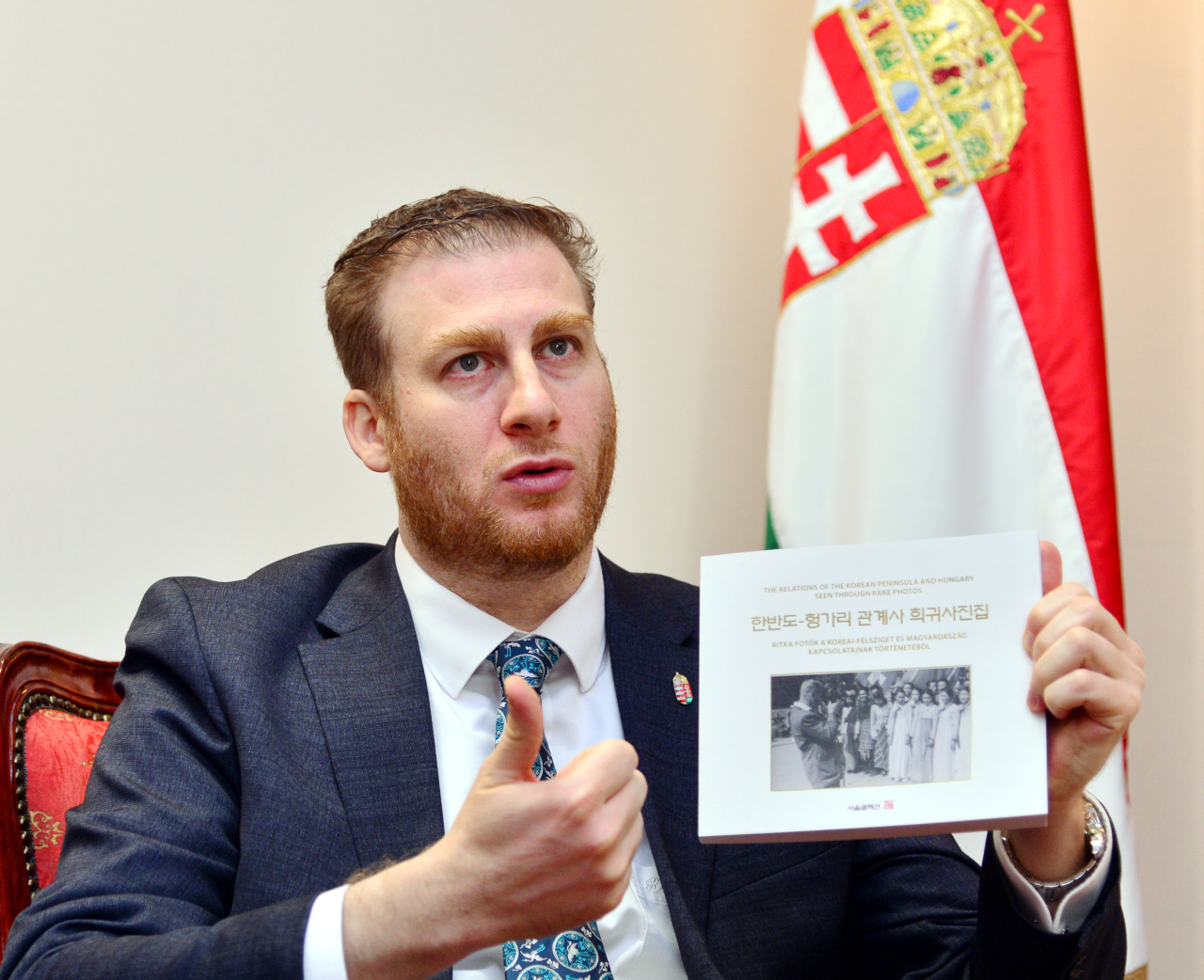More than just a production base, Hungary wants to become a hub for creative innovations for Korean companies, Ambassador to Seoul Mozes Csoma said.
“We would like to move together with Korea,” Csoma told The Korea Herald at the embassy on Feb. 7. “Hungarian and Korean engineers jointly innovating and developing products -- that would be the best.”
Last year, South Korea became Hungary’s No. 1 foreign investor, as more companies sought to capitalize on its comparably low corporate tax, geographical location, infrastructure and human resources.
The envoy, who spoke in Korean during the interview, envisioned “Invented in Hungary” goods that combine the best of two countries, as opposed to “Made in Hungary.”
Hungary, in particular, has a lot to offer in natural sciences and boasts an ample pool of qualified human resources, Csoma continued.
The European country’s people have won 13 Nobel Prize awards, most of which have been in the field of natural sciences. One well-known scientist hailing from Hungary was biochemist Albert Szent-Gyorgyi, who received the Nobel Prize in Physiology or Medicine in 1937 for his discovery of the role of vitamin C.
“Joint research is already underway in some areas, primarily in medical studies and drug development, also on a corporate level,” the envoy said.
The history of ties between Korea and Hungary in the medical sector traces back to the Korean Empire in the late 19th and early 20th centuries.
A photo book published by Csoma, titled “The Relations of the Korean Peninsula and Hungary Seen Through Rare Photos,” shows pictures taken by Hungarian physician Dezso Bozoky in Busan in 1908. Hungary also operated a hospital in the North city of Sariwon during the Korean War.
Csoma is a non-career diplomat appointed to the ambassadorial position in September 2018 on the basis of his expertise in the history of the Korean Peninsula.
He is the first Hungarian to have written his B.A., M.A. and Ph.D. theses in Korean studies. He first stepped foot in Korea 20 years ago as a student after hitting a snag in studies due to a lack of information on the Korean Peninsula.
“Korea is a country that is very similar with Hungary in terms of geographical location surrounded by great powers, history of invasion by other countries and reliance on human resources,” Csoma said.
“We have a lot to learn from each other and many areas to collaborate. I hope Hungarian and Korean companies move in the direction of working together for innovation.”
On the back of commonalities between the two friendly countries and long history that dates back to the 1892 friendship treaty of the Joseon era with the Austro-Hungarian Empire, the top envoy expressed interest to facilitate further academic and cultural exchanges.
In efforts to boost cultural exchanges, the first Hungarian Cultural Institute opened in Myeong-dong, Seoul last year, coinciding with the 30th anniversary of Korea-Hungary diplomatic relations.
For greater exposure of Hungarian language and culture, Hungarian Minister of Foreign Affairs and Trade Peter Szijjarto signed a memorandum of understanding with Dankook University in December.
On a personal level, the top diplomat said he hopes to introduce Hungarian cuisine to Korea, mentioning there is so far no Hungarian restaurant here.
As an expert on Korea, Csoma weighed in on the peace process on the Korean Peninsula, saying though it is not an easy process, he believes in the value of emphasizing a “common Korean national identity”.
“The peace process on the Korean Peninsula is not only up to South and North Koreas, also the interest of great powers. It is not an issue that can be solved easily. (The Koreas) need to trust the common Korean national identity and educate people on this,” Csoma said.
He added that joint projects such as the Gyeoremal-keunsajeon, a Korean language dictionary produced by South and North Korean scholars, is a prime example of collaborative efforts that contribute to the formation of a common identity while staying within the lines of international sanctions and free from political influence.
By Kim Bo-gyung (
lisakim425@heraldcorp.com)








